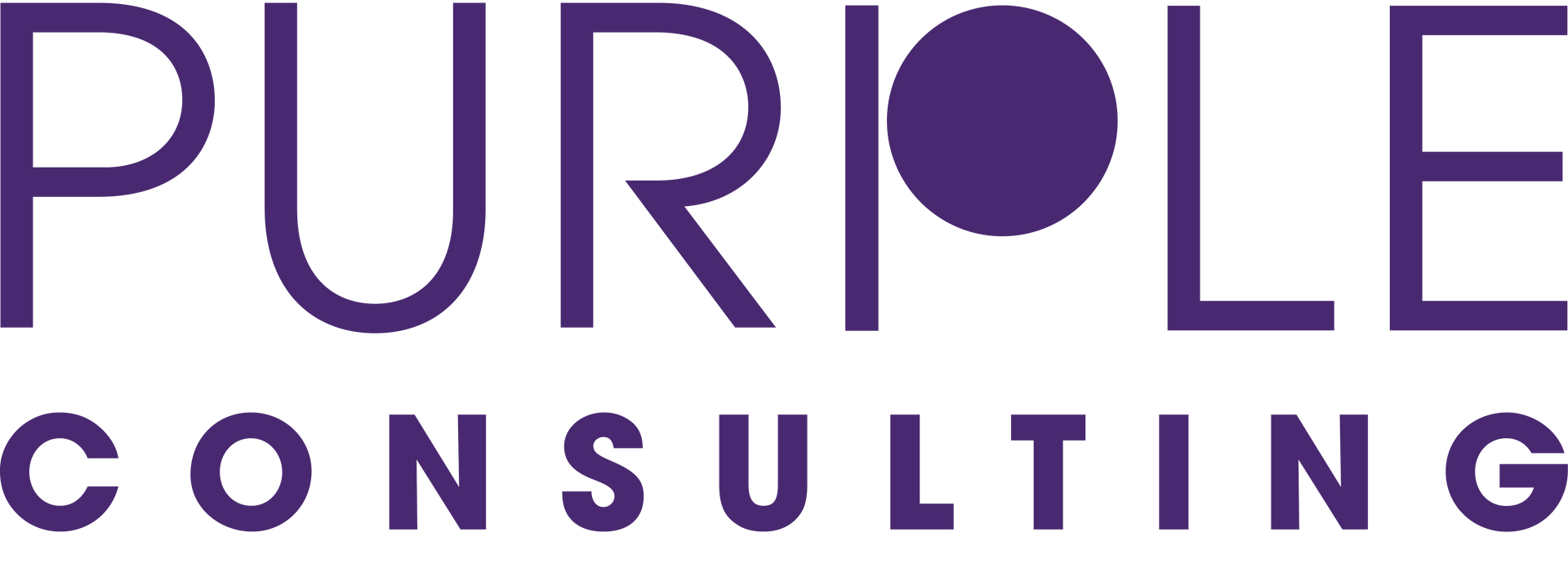
Disability Awareness and Inclusion Resources
NEW! FREE GUIDE TO MAKING YOUR CORPORATE COMMS ACCESSIBLE
This above file is built in Word and converted to PDF. We have added Alt Text to make the PDF accessible. Please email us at charlotte@purpleconsultinggroup.com if you have any problems accessing the content.
Further Resources
Looking to learn more about disability inclusion? Here is a comprehensive list of third party reading and listening materials vetted by us.
To explore Purple Consulting's thought-leadership on disability-related topics, including the social model of disability, disability outcomes, practical tips for ERGs, and debunking the definition of disability, click
here.
We do our best to ensure the accessibility, accuracy and recency of information via these links but cannot be held responsible for their content.
Please contact us at charlotte@purpleconsultinggroup.com if the links don't work or the information outdates.
Disability and DEI Reports & Articles
-
The Business Case For Disability, Accenture
Flagship report presenting the business case for disability:
Getting to Equal: The Disability Inclusion Advantage | Accenture (2018)
-
The Business Case for Diversity, Equity and Inclusion (not disability specific)
McKinsey and Company series of reports:
- Diversity Wins: How Inclusion Matters (2020) How diversity, equity, and inclusion (DE&I) matter | McKinsey
- Delivering Through Diversity (2018) Delivering growth through diversity in the workplace | McKinsey
- Why Diversity Matters (2015) Why diversity matters | McKinsey
BCG
- How Diverse Leadership Teams Boost Innovation, BCG (2018) How Diverse Leadership Teams Boost Innovation (bcg.com)
- Total Societal Impact, A New Lens for strategy, BCG (2017). Total Societal Impact: A New Lens for Strategy (bcg.com)
Forbes
Financial Times
-
ESG and Disability Data: A Call for Inclusive Reporting, Valuable 500
This white paper launched at the World Economic Forum is a call for companies to publicly share disability data by end of 2025.
ESG and Disability Data: A Call for inclusive reporting. (2023)
-
The Purchasing Power of People with Disabilities, American Institute of Research
There is no single global definition of disability and defining disability is complex and evolving.
The various
definitions included here show that the term disability covers a range of physical, mental, intellectual and sensory impairments which impact day to day activities.
-
The United Nations Definition of Disability
The UN Convention on the Rights of Persons with Disabilities (CRPD) protects all persons with disabilities. They are defined in Article 1 as including “… those who have long-term physical, mental, intellectual or sensory impairments which in interaction with various barriers may hinder their full and effective participation in society on an equal basis with others.”
This broad definition adopts what is known as the social model of disability. It recognises that disability is an evolving concept, and that we are often prevented from exercising all of our human rights and fundamental freedoms by barriers of attitude and environment which have been placed in our way. In other words, the Convention seeks to alter social attitudes by ensuring that governments, individuals and organisations recognise that we have the same human rights and fundamental freedoms as all other persons.
-
World Health Organisation (WHO) Definition of Disability
The WHO defines disability as an umbrella term for impairments, activity limitations, and participation restrictions that result from the interaction between a person's health condition and environmental factors.
It is worth noting that the prevalence of disability can vary widely across different populations and regions, and the WHO's estimates are based on available data and statistical modeling.
-
The Americans with Disabilities Act Amendments Act (ADAAA) definition
ADAAA defines a person with a disability as a anyone with a physical or mental impairment that substantially limits one or more major life activities; has a record of such an impairment; or is regarded as having such an impairment.
-
UK Office of National Statistics
For the purposes of this analysis, a person is considered to have a disability if they have a self-reported long-standing illness, condition or impairment, which causes difficulty with day-to-day activities.
-
Websites and Online Healing Courses
Chronic Fatigue School - an online course that helps people with all types of nervous system dysregulation (not just chronic fatigue), including anxiety, POTS, fibromyalgia and more.
Chronic Fatigue School → Heal CFS With Experts Who've Been There
Dani Fagan - Dani freed herself from years of chronic pain and nervous system dysregulation and now offers mindbody courses, meditation, somatic healing and online yoga. My TMS Journey, Dani Fagan
Curable - An online app with proven tools and techniques to reduce chronic pain.
Curable: A Different Approach to Chronic Pain (curablehealth.com)
-
Chronic pain podcasts
1. The Cure for Chronic Pain with Nicole Sachs, LCSW The Cure for Chronic Pain with Nicole Sachs, LCSW on Apple Podcasts
2. Like Mind, Like Body Like Mind, Like Body Podcast - Curable Health
3. Tell Me About Your Pain, Curable and Alan Gordon LCSW Tell Me About Your Pain on Apple Podcasts (last episode was Feb 2022 but all content still relevant and informative)
Disability Books
-
Demystifying Disability: What to know, what to say and how to be an ally
-
Positively Purple: Build an inclusive world where people with disabilities can florish
-
About US, Essays from the Disability Series of the New York Times
-
Being Heumann: An Unrepentant Memoir of a Disability Rights Activist
-
Disability Friendly: How to Move from Clueless to Inclusive
-
Disability Visibility: First-person stories from the Twenty-First Century
-
5 fun fiction books for kids and teens featuring disabled characters
DEI Books
-
DEI Deconstructed: Your No-Nonsense Guide to Doing the Work and Doing It Right
-
Better Allies: Everyday actions to create inclusive, engaging workplaces
-
The Power of Employee Resource Groups: How people create authentic change
-
The Wake Up: Closing the gap between good intentions and real change
Disability and DEI Podcasts
-
A Dog Called Diversity
-
Access All: Disability News and Mental Health
Access All: Disability News and Mental Health, hosted by Nikki Fox and Emma Tracey
-
Inclusive Growth Show
-
The D&Igest: Diversity & Inclusion at work
-
Neurify: Your Neuroscience Based Mental Health Formula
Neurify is co-founded by neuroscientist TJ Power and psychology educator, Stein Kolkman. Neurify offers individuals, companies and schools a unique and engaging approach to improving mental health through rebalancing brain chemistry, using the neurify DOSE formula: Dopamine, Oxytocin, Serotonin and Endorphins.
Check out Neurify here or follow TJ Power on instagram here.
All Rights Reserved | Purple Consulting


References & comment on disability prevalence data
Gathering accurate and comprehensive disability data can be challenging. The presence of varying definitions and methodologies often leads to inconsistencies in the process.
What is clear though, is that the numbers are significant, that 1 in 6 people globally have a disability and that disability is often overlooked in business DEI plans.